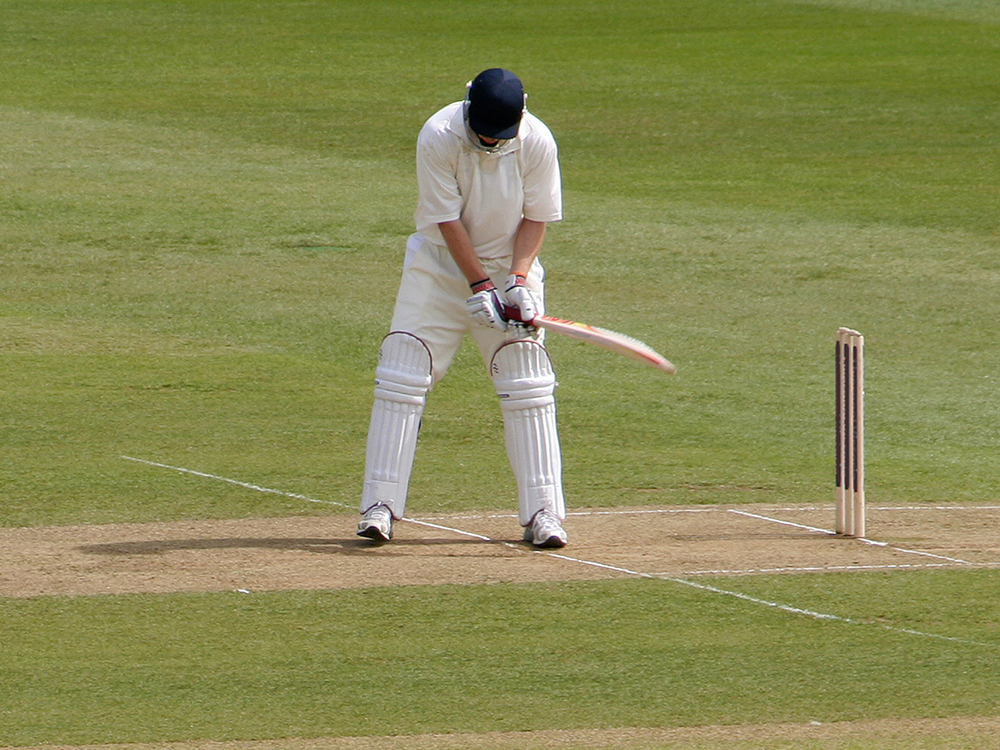|

2,342 runs at an average of 90.08. Nine hundreds, including a double hundred and 309* in a 40 over match.
Impressed?
These are not the stats of a county cricket batsman. These are the 2016 stats of Cannock Cricket Club's Brian Barnard. He plays limited over cricket at weekends, like thousands of others in England. How the heck did a club player managed to score so many runs?
PitchVision had to find out. So, we gave him a call.
We picked up a few tips from the run maker supreme. Here's what we discovered.
Brian is South African who is on his third visit to the UK as an overseas professional. He has a fine pedigree in the game, playing for Gauteng in the first-class competition. Much was expected of him stepping into club cricket. Yet, many overseas players come to the UK with similar expectations and fail.
Brian was not keen to join those ranks. He told me that much of his success is down to his frame of mind.
Many players play overseas to get a free holiday or take it easy during the off season. Instead, Brian decided he was going to give his all. He was going to be the model pro and the results would show on the pitch.
It's easy to underestimate this mindset. But, one of the keys to being a cricketer is having the grit to stay focused on your goal. Distractions and other priorities will always be around. They player who can handle these and still focus on runs is in a powerful position to succeed.
Training plan
So, what does this preparation look like for Brian?
He trains with his team mates at the club during the regularly scheduled sessions. He goes with the flow and takes part with enthusiasm.
Then, outside these sessions he trains three times a week on his on game. It's here he hones his method and game plan in different situations. He doesn't spend a lot of time on technical things, instead trying to build confidence in the way he plays against the type of opponents and conditions he will face at the weekend.
He stressed that his training during the season is not about going outside of his limits. He wants to have a mastery of his game rather than trying to do everything. Even a man who can score a triple century in 40 over has limitations. He knows exactly what they are and sticks to his strengths instead.
When he's not training, he makes sure to get into the gym. He trains every day, even on match days where he does a light workout to get going before a game.
And what about time away from cricket?
Even the best players need R&R time. Brian makes time to visit friends from previous trips to the UK when he has some down time. He can step away from the game for a while and enjoy himself, recharge the batteries and return to his main focus.
A template to follow?
It's tempting to think that if you do the same a Brian you will get the same results.
It's also tempting to scoff at Brian's approach. You might argue you would do well too if you train four times a week and have nothing else to distract you.
In fact, neither of these views are entirely true. Every cricket player is different and responds in different ways. Some prefer more training, others less. Non-professionals usually have a work and family life begging for time too. However, you can take lessons from Brian into your own game and your own life without trying to copy things exactly.
So, set your priorities, do your best to eliminate unimportant distractions, train as hard as time and enthusiasm allow, and learn to relax at the right time.
No one can promise you over 2000 runs a season but if you do these things, you will bat with a great chance of success.
Discuss this article with other subscribers
|

.jpg)



.jpg)

